Projects
Adaptive Education
To the project browser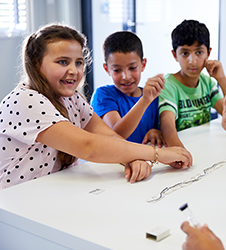
MultiDynAssess-India
The project designs, implements, and evaluates multilingual dynamic assessment (DA) in Indian primary government schools where English is taught in a context characterised by high sociolinguistic diversity and widespread code-mixing practices. It investigates how multilingual versus English-only DA affects Grade 4 students’ language and content learning over time, drawing on classroom observations and a longitudinal comparison with traditional static assessment in schools in New Delhi and Guwahati. By aligning assessment with learners’ full linguistic repertoires, the project aims to promote equity in education and offers implications for multilingual assessment practices in India and other linguistically diverse contexts in the Global South.
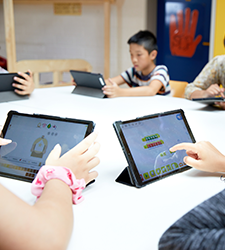
CatMo – Arena
Category learning tasks are experimental paradigms used to study how humans acquire and apply categorical knowledge. Participants learn to classify multi-feature stimuli into categories without being explicitly told the underlying rules. Performance in these tasks provides insight into processes of generalization, abstraction, and memory.
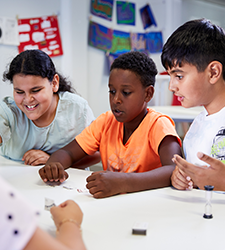
MultiDiskurs
The project aims to account for patterns of variation in the processing of linguistic structures in discourse. In particular, we investigate how bilingual children ranging in age from 8 to 12 integrate morphosyntactic and discourse information, for example by using eye-tracking experiments. Among the factors that contribute to individual variation, we explore the role of cross-linguistic influence, differences in bilingual profiles in terms of language and literacy exposure, individual cognitive skills and bilinguals’ ability to share discourse strategies across their two languages.
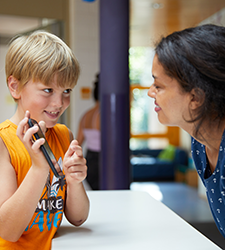
CHAT2TRANSITION
The project examines the emergence and consequences of educational decisions at the transition from primary to secondary school. It focuses on improving the information available to families and teachers. A multilingual chat assistant for families and a reflection program for teachers aim to reduce social and migration-related inequalities in educational outcomes.
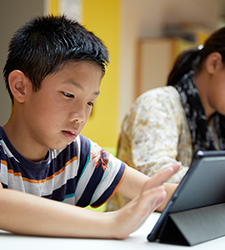
MoMoView
The aim of the project is to investigate individual differences in visual perception and memory for scenes, in particular how people of different ages remember previously viewed scenes and how gaze patterns differ between viewing and recalling scenes.
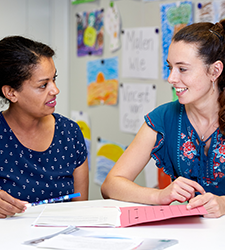
TeWiPrax
In the TeWiPrax project, researchers and teachers from the group „Sprachförderung/Mehrsprachigkeit“ of the “Campusschulen” program collaboratively develop and test materials that support secondary school students in understanding scientific texts. A particular focus is on academic and subject-specific vocabulary.
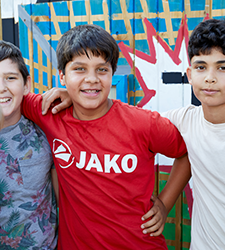
SOGREV
Restrictions on contact and curfews during the coronavirus pandemic meant that children and young people had much less opportunity to socialise. This quickly led to a complete lack of social contact with peers, especially for children and young people from socially disadvantaged backgrounds who were denied access to state institutions such as nurseries or schools […]
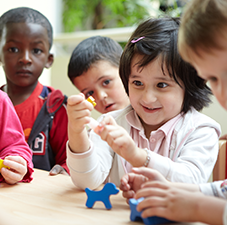
BRISE-School Readiness
The sub-project of the second project phase (2025–2029) at DIPF is dedicated to the effects of the early childhood support chain on the development of basic skills in reading, spelling and arithmetic over the course of the primary school years.
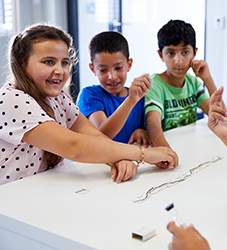
MaLeLiOS
The MaLeLiOS project aims to investigate how narratively designed mathematical learning situations encourage children to engage in mathematical conversations and thus enable them to listen and observe on the one hand and to talk about mathematics and mathematical activities on the other.
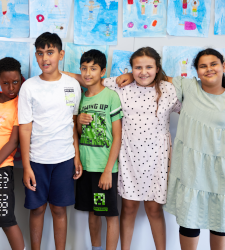
Young Children’s Worlds
This project will develop a questionnaire to quantitatively assess the well-being of children between the ages of 6 and 8. The study will be conducted in parallel in South Africa and Israel.